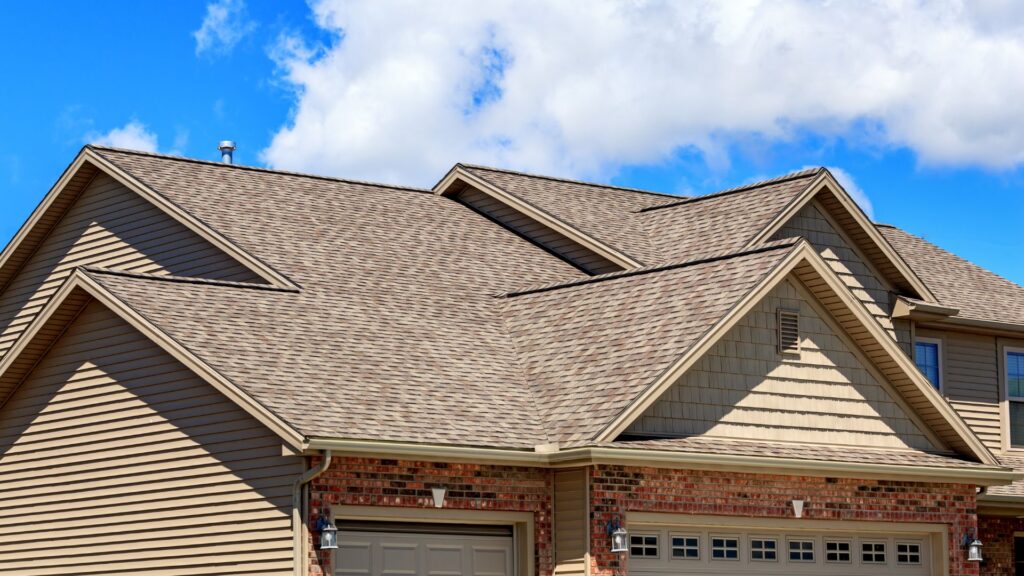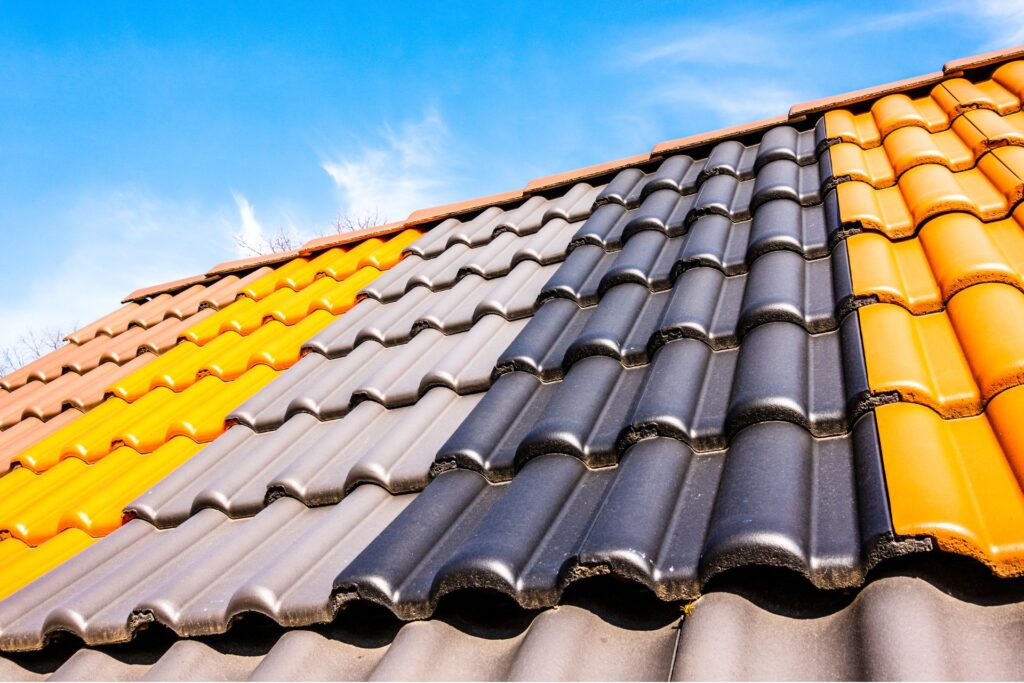Welcome to your go-to guide for understanding roofing costs in New Zealand. Whether you’re building, renovating, or just comparing prices, knowing what to expect can save you time and stress. Roofing prices vary based on your home’s size, material, and location, and it’s easy to feel overwhelmed. That’s where a roof cost calculator comes in, it gives you a quick estimate so you can start planning with confidence. In this post, you’ll learn how these tools work, what factors affect roofing prices in NZ, and how to get the most accurate cost for your home.
A roof cost calculator NZ helps homeowners estimate the cost of roofing projects based on factors like roof size, material type, and location. By entering basic details, you can get an approximate price range for re-roofing or new roof installations in New Zealand. It’s a quick way to plan your budget before getting professional quotes.
Roofing Cost Calculator NZ
Table of Contents
What Is a Roof Cost Calculator?
A roof cost calculator is a simple online tool designed to help homeowners estimate the total cost of a new roof or re-roofing project. Instead of calling contractors or guessing based on outdated price lists, this tool gives you a ballpark figure using current market rates in New Zealand. It’s especially useful if you’re budgeting for a renovation, planning a home purchase, or just trying to understand the financial side of roofing work.
To generate an estimate, the calculator typically asks for a few key details. These usually include your roof size in square meters, the type of roof you have (flat, pitched, gabled, etc.), and the material you plan to use, such as Colorsteel, metal tiles, asphalt shingles, or clay tiles. Some advanced calculators may also ask for your region or postcode to reflect local labour and material rates more accurately.
Once you input your data, the calculator uses up-to-date average roofing costs in New Zealand to produce a rough estimate. These estimates are often based on standard industry rates, material costs, and regional averages collected from recent roofing projects. The result gives you a price range that can help guide your next steps, whether that means saving more, comparing quotes, or contacting a roofer.
However, it’s important to understand what a roof cost calculator can and can’t do. It’s a great starting point, but it won’t account for every detail that affects your final cost. For example, it won’t consider roof access issues, structural repairs, or additional services like guttering or insulation. It also can’t detect hidden damage under old roofing materials. That’s why experts recommend using the calculator for budgeting only, and always following up with an on-site inspection and professional quote.
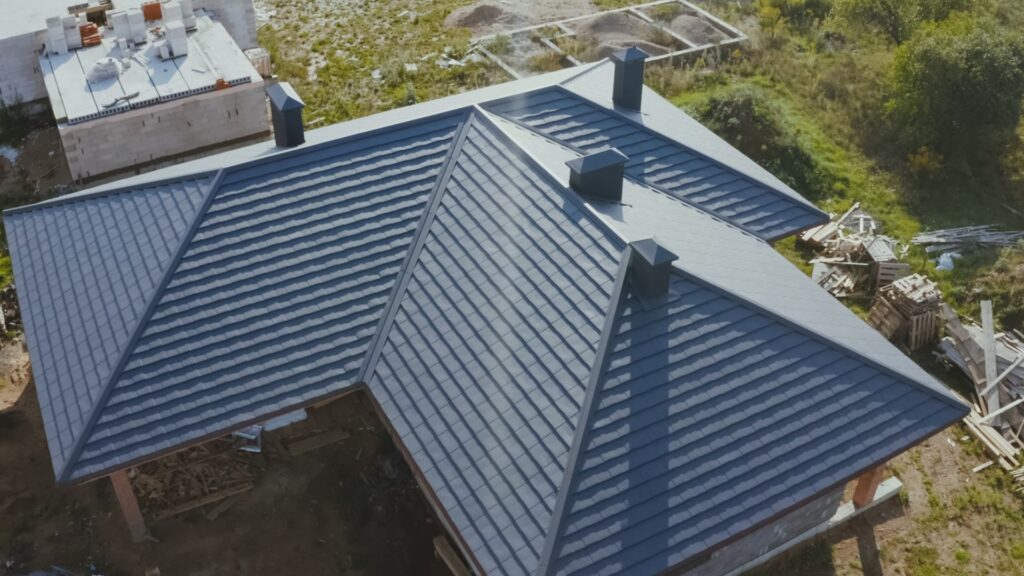
What Factors Affect Roofing Costs In NZ?
Roofing costs in New Zealand can vary widely depending on several key factors. Whether you’re building a new home or replacing an existing roof, it’s important to understand what drives the final price. A roof cost calculator can help provide a rough estimate, but to get a realistic idea of your budget, you need to look at the individual elements that influence the total cost. Here’s a breakdown of the main factors affecting roofing prices across New Zealand.
Roof Size And Complexity
The larger your roof, the more materials and labour are required to complete the job. A small, simple roof is quicker and easier to install, which keeps costs down. But if your roof has multiple levels, valleys, or intricate angles, it becomes more labour-intensive. More complexity also means more wastage, more cutting, and higher labour hours. For example, a single-level 100m² roof will cost significantly less than a two-storey home with dormers and skylights that total the same area.
Roof Pitch And Accessibility
The pitch, or steepness, of your roof affects both safety and installation time. Steep roofs require extra safety equipment, scaffolding, and experienced installers. A roof with difficult access (e.g., on a tight site or surrounded by trees) will also take longer to complete. These factors lead to increased labour charges. A low-pitched or flat roof is often faster to install and safer to work on, which helps keep costs lower.
Material Types
Roofing material is one of the biggest cost factors. In New Zealand, popular roofing options include Colorsteel, concrete tiles, and asphalt shingles. Each comes with different price points, durability, and installation requirements.
- Colorsteel (metal roofing): One of the most common and affordable options. Prices typically range from $70 to $110 per m² installed, depending on profile and quality.
- Concrete tiles: Heavier and more durable but costlier to install. Expect to pay around $100 to $140 per m².
- Asphalt shingles: Less common in NZ but increasingly used in modern builds. Pricing ranges from $90 to $130 per m².
Material choice doesn’t just affect the cost of the product itself. It also impacts labour time, roof support requirements, and longevity. Some materials last longer or require less maintenance, which can reduce long-term costs even if the upfront price is higher.
Labour Costs
Labour rates differ significantly by location. For example, roofing labour in Auckland tends to be higher due to demand and cost of living. In comparison, regional areas like Dunedin or Invercargill may have lower hourly rates. Here’s a rough idea:
- Auckland: $70–$90/hour
- Wellington: $65–$85/hour
- Christchurch: $60–$80/hour
The current shortage of skilled roofers in some regions can also push prices higher. Roofing contractors with strong reputations or qualifications may charge more, but they often provide higher quality workmanship.
Extras And Hidden Costs
Many homeowners forget to include extra costs in their initial roofing budget. These can make a significant difference to your total price.
- Underlay and waterproofing membranes: Often required beneath tiles or metal roofs.
- Removal of old roofing material: Disposal fees and labour can add $20–$40 per m².
- Scaffolding and edge protection: Required by law for safety, with costs ranging from $2,000 to $5,000+ depending on site complexity.
- Building consent or council permits: In some cases, you’ll need approval from your local council, which comes with fees and paperwork.
When using a roof cost calculator in NZ, be sure to factor in these extras to avoid surprises during the quoting process.
Understanding these factors will help you plan more accurately and avoid underestimating your roofing project. It’s always best to use a calculator for initial budgeting, then follow up with quotes from local roofing contractors to get a complete and accurate picture.
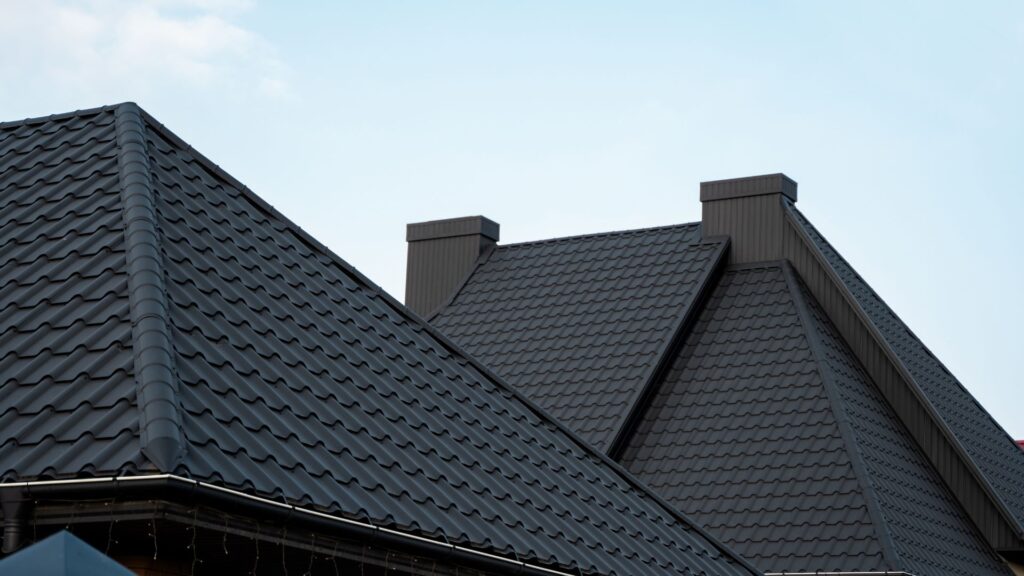
How Much Does Roofing Typically Cost In NZ?
Roofing costs in New Zealand vary depending on the size of your home, the materials you choose, and the complexity of the job. Whether you’re planning a small home renovation or a full re-roof for a large property, having a rough estimate helps you budget more confidently. Below are average ballpark figures to give you a clearer picture of what to expect.
For a small home around 100m², a basic metal roof such as Colorsteel or corrugated iron is one of the most affordable options. These materials are lightweight, durable, and widely used across NZ. On average, the cost for supply and installation ranges from $12,000 to $17,000, depending on labour rates in your region and any extra work like removing the old roof or setting up scaffolding.
If you own a medium-sized home about 150m², and you prefer a more stylish finish like concrete or clay tiles, the costs naturally increase. Tile roofs offer better insulation and have a longer lifespan but require more support due to their weight. The average cost for a mid-range tile roof falls between $22,000 and $30,000, especially if your home has a complex roof shape or multiple levels.
For a large home around 200m², choosing premium materials such as standing seam metal, architectural tiles, or slate pushes the price even higher. These materials offer top-tier aesthetics and durability but come with higher supply and labour costs. A premium roof for a 200m² property typically ranges from $35,000 to $50,000 or more, depending on the roof pitch, access difficulty, and finish quality.
Keep in mind that these are average estimates based on standard roofing projects. Your final cost can change depending on your location, the contractor you hire, and any custom requirements. For a more accurate quote, it’s always best to use a local roof cost calculator and follow up with at least two professional roofing companies in your area.
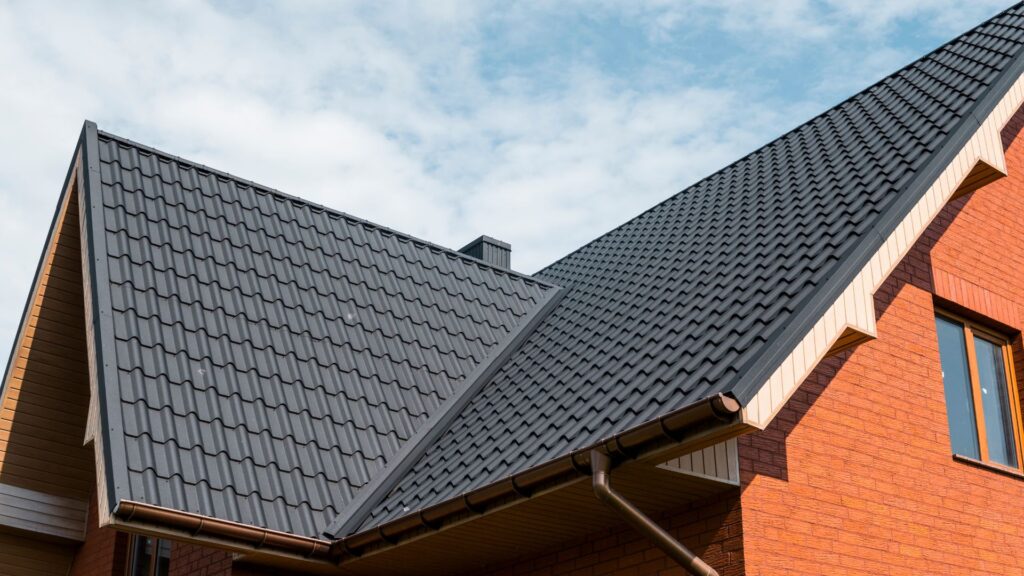
Pros And Cons Of Using A Roofing Calculator
A roofing calculator can be a helpful tool when you’re trying to get a rough idea of how much your roofing project might cost. Whether you’re planning a re-roof, a new build, or just exploring your options, these calculators give you an easy way to start budgeting. But while they’re convenient, they’re not perfect. Here’s what you need to know about the pros and cons before relying on one.
Pros Of Using A Roofing Calculator
- Quick And Free Estimate
One of the biggest advantages of using a roofing calculator is how fast and simple it is. Most calculators only require a few basic inputs, such as roof size, pitch, and material, and they give you an instant estimate. There’s no need to call contractors or wait days for a quote. For busy homeowners or those early in the research phase, this is a major plus. - Good For Early Budgeting
If you’re not sure whether a roofing project is even in your budget, a calculator can help you find out right away. It’s useful for setting a general budget, comparing material costs, and deciding if now is the right time to move forward. You can test different material options, roof sizes, and even job types (re-roof vs. full replacement) to get a clearer picture of potential costs.
Cons Of Using A Roofing Calculator
- Can’t Account For Every Variable
No matter how detailed a calculator is, it can’t cover everything. It won’t know the condition of your current roof, if you have structural issues, or whether extra work, like replacing timber battens or adding insulation, is needed. These are things only a roofer on-site can assess. - May Not Reflect Local Labour Spikes
Labour costs in New Zealand can vary a lot depending on your region and the time of year. A roofing calculator often uses national averages, which means the final price might be higher or lower than what it shows. In places with high demand, like Auckland or Queenstown, labour rates can change quickly and push your total higher. - Always Follow Up With A Real Quote
While a calculator is a great first step, it should never be the final one. Once you have a ballpark figure, the next move is to get at least two or three quotes from licensed roofing contractors. A professional can inspect your roof, provide a written estimate, and walk you through any potential issues the calculator couldn’t detect.
Roof cost calculators are a useful starting point for any homeowner in New Zealand. They give you a fast, free estimate and help you prepare your budget. But to avoid surprises, always back up your online results with advice from a qualified roofing professional.
How To Use A Roof Cost Calculator The Right Way
Using a roof cost calculator can save you time and help you set realistic expectations for your roofing project. But to get an accurate estimate, you need to use the tool the right way. Many homeowners in New Zealand rush through the process or guess their inputs, which often leads to misleading results. Here’s how to avoid that and make the most of your online roofing estimate.
- Start With The Right Measurements
Before opening any calculator, take the time to measure your roof area as accurately as possible. Don’t just rely on floor plans or rough guesses. Roofing calculators typically ask for total roof size in square metres, and giving the wrong number can skew your estimate. If you’re not sure how to measure it, consider using satellite tools like Google Earth or consult your original house plans. You can also ask a roofing contractor to confirm the numbers before you lock in a final quote. - Choose Your Roofing Material Wisely
Every calculator will ask what type of roofing material you plan to use. This matters a lot because roofing prices vary widely in New Zealand. For example, a basic long-run metal roof might cost much less than a high-end tile or slate option. If you’re unsure, start with a few material options and compare the differences. Just remember, the cheapest material isn’t always the best long-term choice, consider lifespan, weather resistance, and maintenance needs too. - Be Honest About Roof Condition And Access
Some calculators include questions about the current condition of your roof and how easy it is to access. Don’t skip this. If your roof is steep, high, or surrounded by obstacles, the labour cost will go up. Similarly, if the current roof needs full removal or repairs before replacement, expect additional charges. These details can greatly impact the final quote, and giving honest answers ensures you don’t face surprises later on. - Use The Estimate As A Guide, Not A Final Price
Roof calculators are great for budgeting and planning, but they aren’t a substitute for a professional quote. Always follow up your online estimate with at least one in-person inspection. A qualified roofer can spot issues that a calculator can’t, like hidden leaks, framing problems, or compliance issues with NZ building codes. - Compare Multiple Results
Try a few different calculators from trusted New Zealand roofing companies. Compare the results and look for patterns. If they’re close, you’ve likely entered your data well. If the numbers are all over the place, double-check your inputs and look for calculators backed by real local pricing data.
By taking these simple steps, you’ll get a far better idea of your roofing costs and can plan your project with confidence. Don’t treat it as guesswork, use the calculator properly, and you’ll be a step ahead when it’s time to hire a roofer.
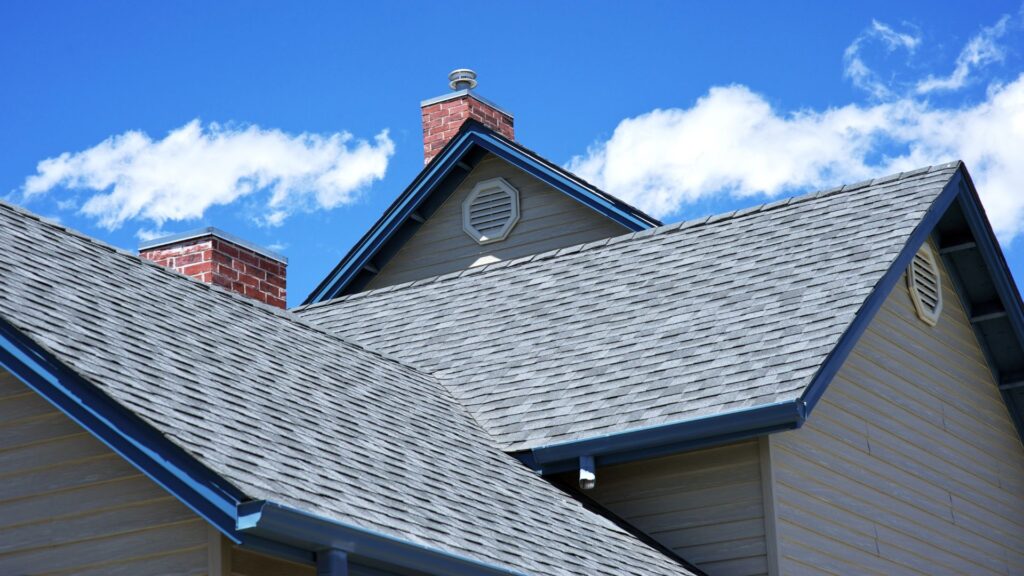
Best Roof Cost Calculators In NZ
When planning a roofing project, one of the first steps is getting a rough idea of what it might cost. Using a roof cost calculator is a quick and easy way to estimate expenses without having to call a contractor right away. While these tools don’t replace a professional quote, they give you a strong starting point to plan your budget. Below are some of the most reliable and user-friendly roof cost calculators available in New Zealand.
- Roofing Association of New Zealand (RANZ) Roof Cost Estimator
The Roofing Association of New Zealand offers an informative estimator tool that helps homeowners understand the key cost drivers of roofing projects. While it doesn’t give a precise dollar amount, it guides you through the factors that influence costs, such as material choice, roof size, pitch, and complexity. It’s ideal for first-time renovators who want to learn what to expect before contacting a roofer. The tool also connects users with certified RANZ members for accurate quotes based on their region. - MyRoofingEstimate.co.nz
MyRoofingEstimate is a calculator built for New Zealand homeowners looking for fast, rough pricing. This free tool allows you to enter basic information like roof dimensions, material preferences, and location. It then generates an estimated price range based on average NZ roofing rates. The site also offers an optional form to request a tailored quote from local contractors. It’s easy to use and gives you a ballpark figure in under five minutes. - RoofingSmiths Quick Quote Tool
RoofingSmiths is a trusted network of professional roofers in New Zealand. Their online quote tool allows users to input roof type, size, and material to get an instant estimate. What sets this tool apart is its focus on Colorsteel roofing, making it useful for homeowners considering metal options. It also connects you directly with their network for follow-up consultations.
Each of these tools is best used during the early stages of planning. They help set realistic expectations and prepare you for detailed quotes later on. Always follow up with a licensed roofing contractor to confirm the final price for your specific property.
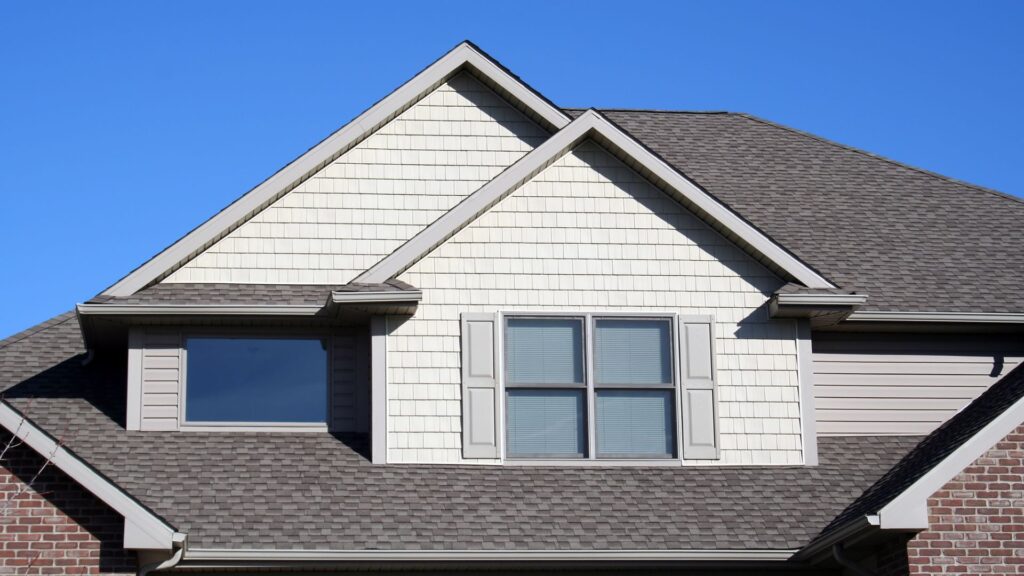
Real-Life Example: What It Cost To Re-Roof A Home In NZ
To give you a better understanding of what roofing really costs in New Zealand, let’s walk through a real-life example from a homeowner in Hamilton. This case study outlines the full process, cost breakdown, and what the homeowner learned from the experience.
The property is a standard 3-bedroom home in a quiet suburb of Hamilton. The house was built in the late 1990s and had its original tile roof, which was starting to show signs of wear, cracks, leaks, and broken tiles after several storms. The homeowner decided it was time for a full roof replacement.
After researching different materials, the homeowner chose long-run metal roofing. This option was selected for its durability, low maintenance, and clean look. It also holds up well in Hamilton’s mix of sun, wind, and rain, making it a smart choice for long-term value.
The total cost for the project came to $19,500, including both materials and labour. This estimate covered:
- Removal of the old tile roofing
- Supply and installation of long-run metal sheets
- Roofing underlay
- Flashings, screws, and fixings
- Scaffold hire for safety compliance
- Disposal of old roofing material
What surprised the homeowner most was how much the extra items added to the total. Things like scaffolding, rubbish removal, and safety measures aren’t always mentioned in roofing calculators, but they can easily add $2,000–$3,000 to the final price. Labour was also a bigger portion of the cost than expected, making up nearly 50% of the total.
From this experience, the homeowner shared a few key lessons:
- Get at least three quotes from different contractors
- Ask for a full cost breakdown, including extras
- Book your roofer early, many good ones are booked out months in advance
- Don’t rely solely on online estimates; always follow up with a site visit
This story shows that while a roof cost calculator is a useful tool, the actual numbers depend on many variables. Always treat the estimate as a starting point and be prepared for adjustments based on real-world factors.
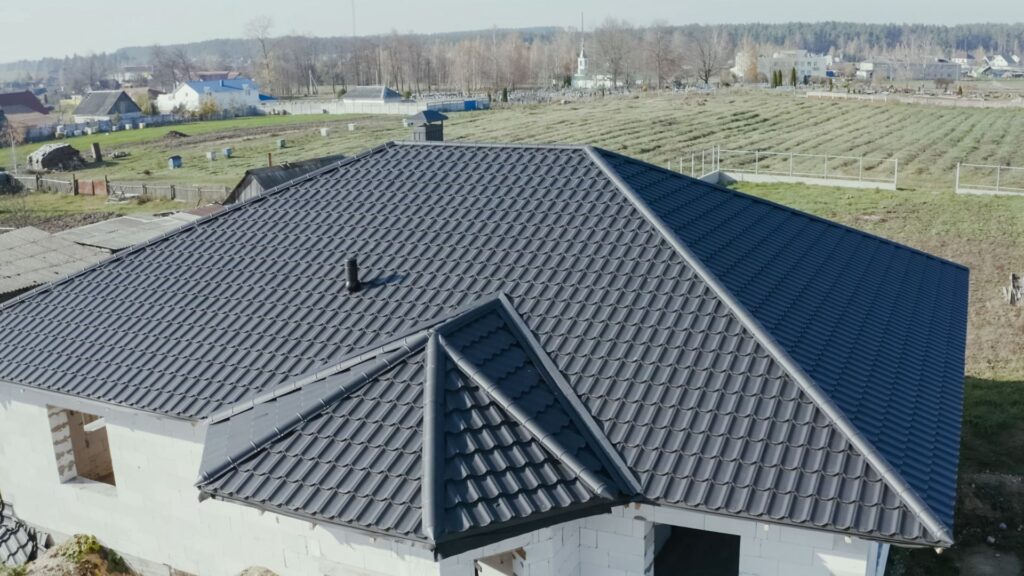
Tips For Saving Money On Your Roof Project
Roofing projects are a major investment, and the costs can add up quickly if you’re not careful. Whether you’re replacing an old roof or installing one on a new build, being strategic with your choices can help you save thousands. Below are practical ways to reduce expenses without cutting corners on quality or durability.
Get Multiple Quotes
Don’t settle for the first quote you receive. Roofing prices in New Zealand can vary widely depending on the contractor, region, and materials used. Request at least three quotes from licensed roofing professionals. This not only helps you compare costs but also gives you insight into what’s included in the pricing, such as scaffolding, underlay, and disposal of old materials. Some contractors may offer discounts for prompt booking or referrals, so don’t hesitate to ask.
Choose The Right Material For Your Climate
New Zealand’s climate varies significantly from north to south. What works well in Auckland might not be suitable in Queenstown. For example, metal roofing like Colorsteel is durable and weather-resistant, making it ideal for areas with high rainfall. Meanwhile, concrete or clay tiles may be better for warmer, drier regions. Choosing a roofing material that suits your local climate reduces the risk of repairs and replacements later, saving you money in the long run.
Book During Off-Peak Seasons
Roofing contractors tend to be busiest during the warmer months, especially in spring and early summer. Booking your project during slower periods, such as late autumn or early winter, can result in lower labour costs and shorter wait times. Some roofing companies may even offer off-season discounts or promotions to fill their schedules during quieter months. Planning ahead gives you more negotiating power and increases your chances of getting the best deal.
Re-Roof Instead Of Full Replacement (When Possible)
If your existing roof structure is still in good shape, re-roofing might be a smart option. This involves installing new roofing material over the old one, which can cut down on labour and disposal costs. Not all roofs are suitable for re-roofing, so it’s essential to have a professional inspect your home first. But if it’s a viable option, it can save you both time and money without compromising performance or appearance.
By applying these money-saving tips, you can complete your roofing project on budget while ensuring long-term durability and value for your home. Always focus on quality and reliability, saving money shouldn’t come at the cost of future repairs.
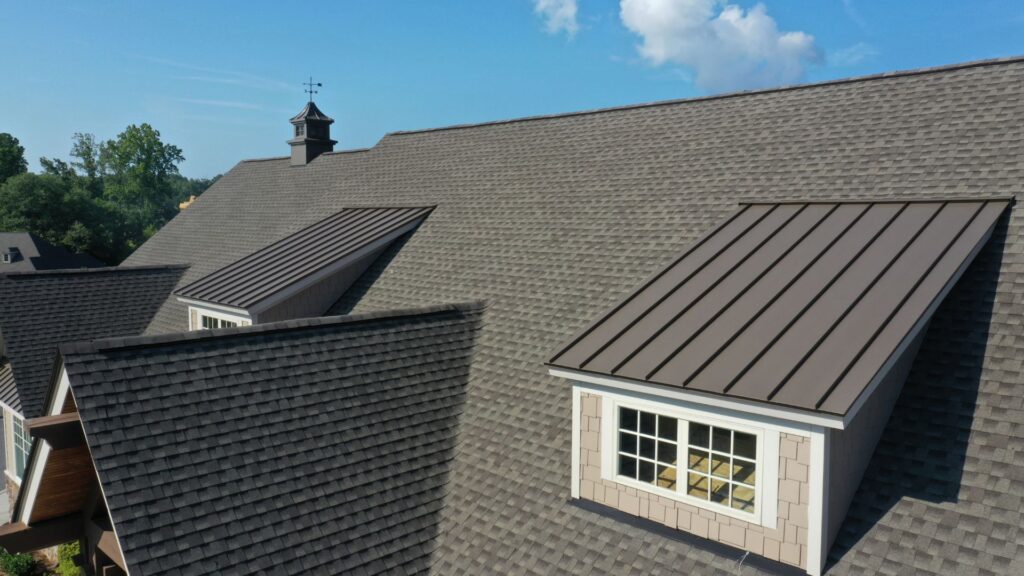
When To Contact A Professional Roofing Contractor
At some point, every homeowner needs to stop guessing and speak to a roofing expert. While roof cost calculators in NZ are helpful for rough estimates, they’re not a substitute for professional advice. Knowing when to make that call can save you from expensive repairs down the line or even complete roof failure.
Signs Your Roof Needs Urgent Work
If you notice water stains on your ceiling, missing shingles, sagging rooflines, or leaks after heavy rain, it’s time to act fast. These are warning signs that your roof might already be damaged or compromised. Ignoring them could lead to serious structural issues or interior damage. Moss or mold growth on the roof, excessive granules in gutters, and visible light coming through the attic are also red flags. Even if there’s no visible damage, an aging roof, especially one over 20 years old, should be inspected by a licensed contractor.
Why A Quote Beats An Online Estimate
An online calculator can give you a general price range based on averages. But every home is different. A professional quote takes into account the exact condition of your roof, the materials needed, labor costs in your area, and any hidden issues like water damage or poor ventilation. This gives you a clear picture of the actual cost, not just a ballpark figure. More importantly, a roofer can explain your options, recommend suitable materials, and help you avoid spending money on the wrong solution.
Find A Trusted Roofer Near You
If you’re ready to take the next step, use a trusted directory or contact form to connect with a licensed roofing contractor in your area. Getting at least two or three quotes will help you compare prices, timelines, and services. Make sure the contractor is experienced, insured, and offers a clear written quote. If you don’t already have someone in mind, you can use our Find a roofer near me tool to get started. Getting expert advice today can help you avoid major issues tomorrow.
Ready to get a roofing estimate that fits your budget? Use our roof cost calculator or visit our homepage to connect with trusted roofing experts near you.
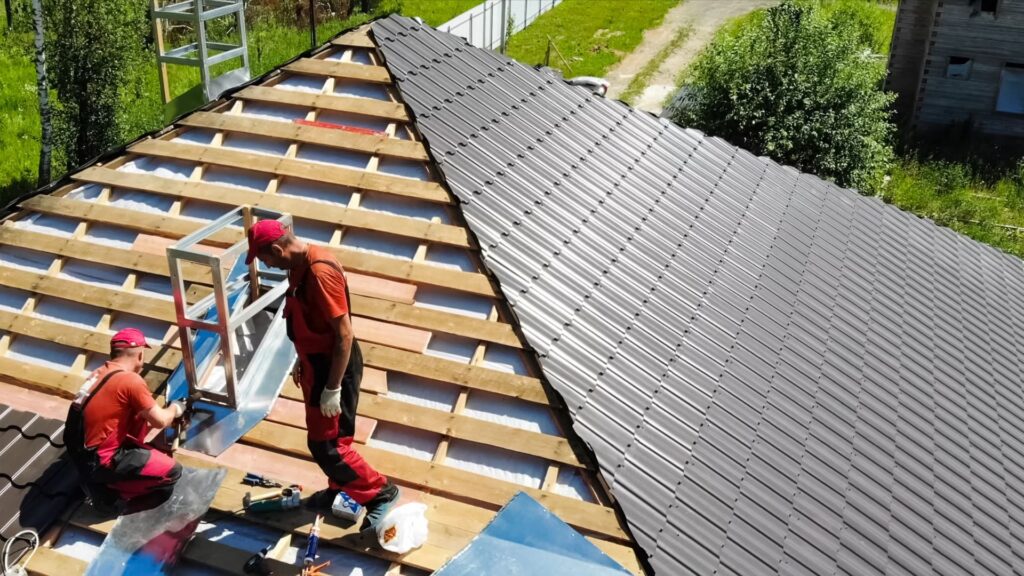
FAQs: About Roof Cost Calculator In NZ
What is a roof cost calculator?
A roof cost calculator is an online tool that provides an estimated cost for roofing projects based on inputs like roof size, material, and location.
How accurate is a roof cost calculator in NZ?
While useful for early planning, the calculator provides rough estimates only. Actual prices may vary based on local labour, material rates, and roof complexity.
What factors affect roofing costs in New Zealand?
Key factors include roof size, pitch, material type, labour costs, accessibility, and extra work like removing an old roof or installing new underlay.
How much does it cost to re-roof a house in NZ?
Costs vary by region and material. On average, re-roofing a 100–150m² home can range from $12,000 to $25,000 depending on the materials used.
Which roofing material is the most affordable in NZ?
Metal roofing, like Colorsteel, is generally the most budget-friendly option. Asphalt shingles and clay tiles are more expensive.
Do I need a professional quote even after using a calculator?
Yes. A professional quote is more accurate and considers site-specific factors that calculators can’t, such as roof access, structural repairs, and permits.
Can I use a roof cost calculator for both new builds and replacements?
Yes, most calculators allow you to estimate costs for both new roof installations and re-roofing projects.
Are labour costs included in roof cost calculator results?
Some calculators include estimated labour costs, but it’s always best to confirm with a local roofing contractor for a detailed breakdown.
Where can I find a reliable roof cost calculator in NZ?
Check roofing company websites, local builder directories, or the Roofing Association of New Zealand for trusted tools.
What’s the best way to lower roofing costs in NZ?
Get multiple quotes, choose cost-effective materials, schedule work during off-peak seasons, and consider re-roofing instead of full replacement if possible.
Conclusion
Roof cost calculators are a helpful starting point for anyone planning a roofing project in New Zealand. They give you a rough estimate based on basic details like roof size and material type, which can help you understand the potential cost range before reaching out to professionals. But while these tools are useful for initial budgeting, they don’t replace an expert’s assessment. Every roof is different, and real quotes will factor in site access, labour rates, condition of the existing structure, and more. If you’re serious about getting your project underway, the next step is simple: contact a trusted local roofer, request a detailed quote, and begin planning with confidence. With the right information and guidance, budgeting for your new roof doesn’t have to be stressful or complicated.
About the Author:
Mike Veail is a recognized digital marketing expert with over 6 years of experience in helping tradespeople and small businesses thrive online. A former quantity surveyor, Mike combines deep industry knowledge with hands-on expertise in SEO and Google Ads. His marketing strategies are tailored to the specific needs of the trades sector, helping businesses increase visibility and generate more leads through proven, ethical methods.
Mike has successfully partnered with numerous companies, establishing a track record of delivering measurable results. His work has been featured across various platforms that showcase his expertise in lead generation and online marketing for the trades sector.
Learn more about Mike's experience and services at https://theleadguy.online or follow him on social media:

